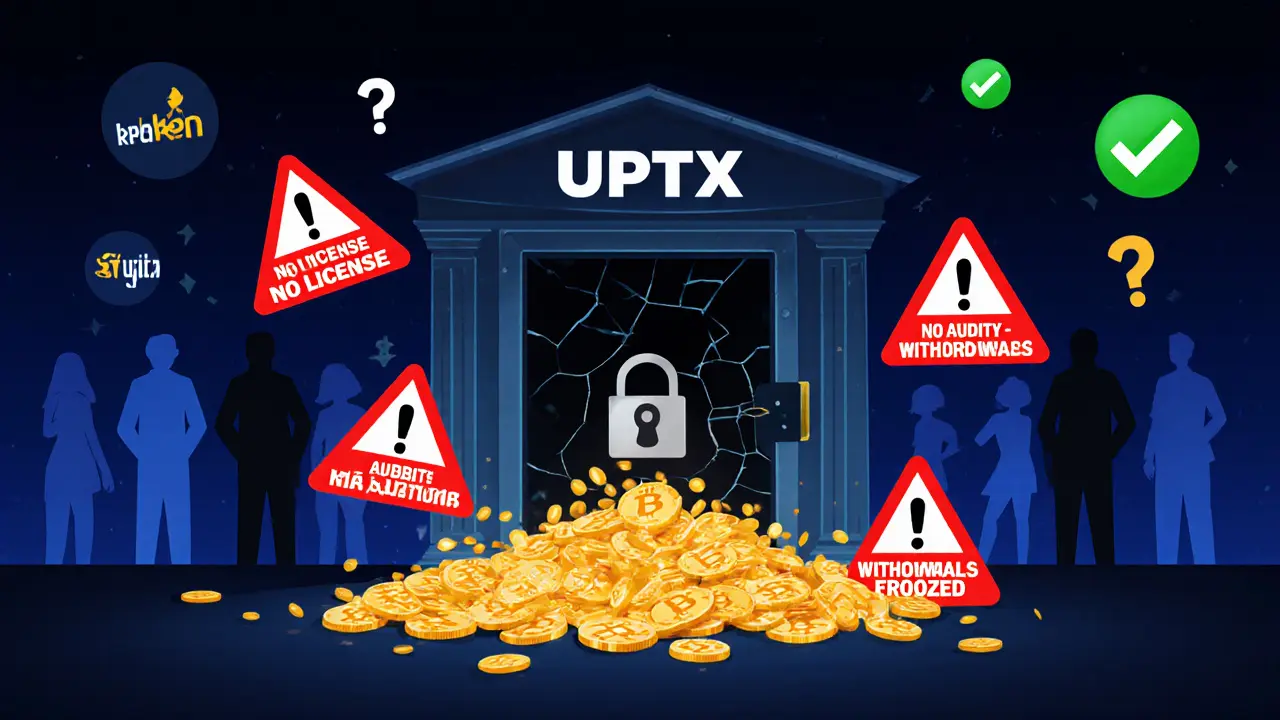UPTX crypto exchange shows multiple red flags: untracked volume, no regulation, withdrawal issues, and zero expert coverage. Don't risk your funds on this unverified platform.
UPTX Scam: How to Spot Fake Crypto Projects and Avoid Losing Money
When you hear about UPTX, a cryptocurrency that doesn’t exist on any blockchain, exchange, or public ledger. Also known as fake crypto coin, it’s not a project—it’s a trap. Scammers create names like UPTX to look real, then vanish with your money before anyone can blink. This isn’t rare. In 2024 alone, over $1.2 billion was lost to similar fake crypto schemes, according to blockchain forensic firms tracking exit scams. These scams don’t need a website, whitepaper, or team—they just need a catchy name and a TikTok ad.
Look at the posts below. You’ll see XREATORS (ORT), a coin with zero code, no team, and no wallet—just like UPTX. Then there’s YodeSwap, a decentralized exchange that drained its liquidity and disappeared. And Nivex, an AI trading platform with no verified track record and no license. These aren’t coincidences. They follow the same pattern: hype, fake promises, then silence. Real crypto projects don’t hide. They publish code on GitHub. They list on CoinGecko. They answer questions on Twitter. If you can’t find any of that, it’s a scam.
Scammers rely on one thing: urgency. They tell you to act now, or you’ll miss out. They use fake testimonials, fake trading volumes, and fake celebrity endorsements. But the truth is simple—if a crypto coin isn’t listed on at least one major exchange, it’s not real. If the team has no names, no LinkedIn profiles, no past projects, it’s a ghost. If the website looks like it was built in 2017 with a free template, it’s a trap. You don’t need to be a tech expert to spot this. You just need to ask: Can I find this project anywhere outside the ad I just saw?
The posts here aren’t just warnings—they’re proof. Each one breaks down a real case: what went wrong, who got hurt, and how to avoid it next time. You’ll learn how to check if a token is real, how to spot a drained liquidity pool, and why airdrops that ask for your private key are always fake. This isn’t theory. These are real examples of people who lost money because they didn’t ask the right questions. You don’t have to be one of them.
